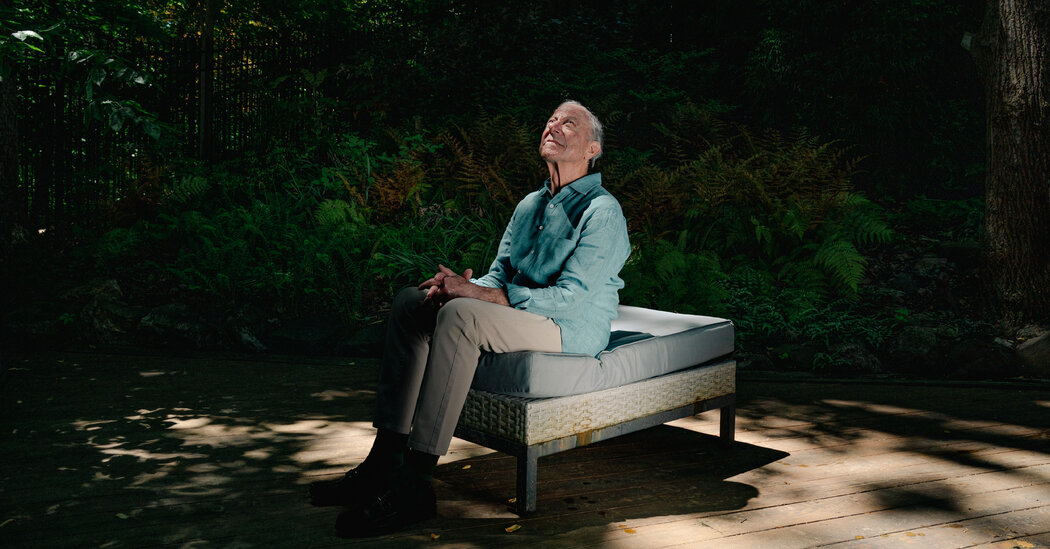Life-Changing Psychedelics, for When Life Is Ending
Barry Blechman, an 81-year-old international relations analyst, traveled to a clinic in Bend, Oregon, for a psilocybin session. After drinking a tea containing the psychoactive component of magic mushrooms, he reported feeling a sense of levity and a weight lifted off his shoulders. He was diagnosed with metastatic bladder cancer and had been experiencing angst and depression triggered by his diagnosis. However, the psilocybin session gave him a new perspective on life and helped him gain insights into his personality traits that had negatively impacted his relationships.
Blechman is among thousands of Americans with serious medical conditions who have turned to psychedelic medicine to address the anxiety and existential distress that often accompany a potentially terminal diagnosis. Many have flocked to psilocybin clinics in Oregon, where the treatment is legal, while others have tried ketamine in their therapist’s office or at home.
The use of psychedelics in palliative care has been growing rapidly, with many patients reporting relief from fear, anxiety, and physical pain. Dr. Michael Fratkin, a palliative care specialist in California, has seen patients experience a marked reduction in their symptoms after receiving ketamine therapy.
The field of psychedelic-assisted palliative care is still in its infancy, but it has gained momentum in recent years. In 2020, the U.S. Department of Veterans Affairs announced it would begin funding research into MDMA-assisted therapy for post-traumatic stress disorder, and the Food and Drug Administration is evaluating nearly two dozen applications for psilocybin to treat depression, anorexia, and alcohol-use disorder.
Studies have shown that psilocybin can have lasting benefits, with 80% of patients experiencing a positive response and 50% reporting full remission of depressive symptoms two months after a single dose. A 2020 study found similar results for patients more than four years after initial treatment.
Researchers acknowledge that the field still faces challenges, including the need for larger and more rigorous studies. Dr. Fratkin notes that conducting randomized, double-blind trials can be difficult due to the subjective nature of the treatments.
Despite these challenges, many practitioners are optimistic about the potential of psychedelic therapy. Dr. Hendel, a family nurse practitioner in Virginia, has used ketamine to treat end-of-life patients and has seen remarkable results. She notes that antidepressants and anti-anxiety medications often leave patients feeling dazed and disconnected, while ketamine can bring relief from sadness and fear.
Dr. Ross, an addiction psychiatrist at NYU Langone Health, has been studying the use of psychedelics in end-of-life care and has seen many patients experience a positive shift in their outlook on life. He notes that the field is still in its infancy, but that the results are promising.
As for Blechman, he has continued to have positive experiences with psilocybin therapy, which has allowed him to find joy in small moments and to live with a greater sense of peace. He has also been able to understand and reconcile with his past, including his relationships with his parents and his own anger and fear.
Overall, the use of psychedelics in palliative care is a rapidly growing field with promising results. While it is still in its early stages, many practitioners and patients are experiencing significant benefits and are hopeful for its potential to improve end-of-life care.

